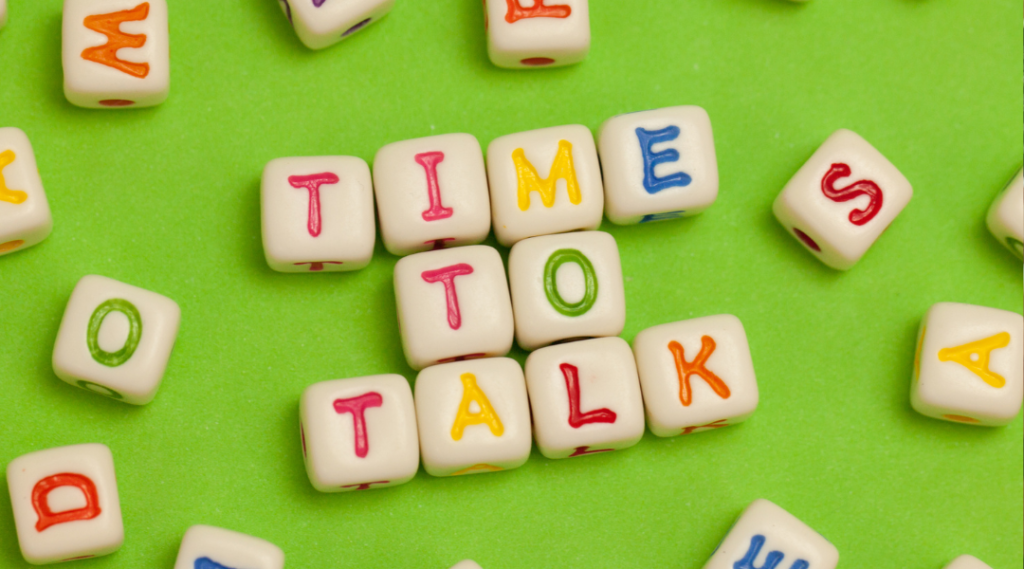Why Social Interaction Is A Form Of Self-Care

Social Interaction: A Form Of Self-Care
Although it might not be immediately obvious, social activity is a form of self-care and has been since the beginning of time.
We depend on each other for so many reasons… Like emotional well-being, a sense of belonging, social learning, and much, much more.
Social interaction provides emotional support, reduces feelings of loneliness, and helps individuals cope with stress, anxiety, and other emotional challenges. Sharing experiences and emotions with others can provide comfort and validation.
In general, self-care involves intentionally taking actions to nurture your physical, mental, and emotional well-being. While activities like taking a relaxing bath, practicing mindfulness, or going for a walk are commonly associated with self-care, social interactions can also play a crucial role in promoting overall wellness.
Below are 7 reasons why social interaction is a form of self-care.

7 Reasons Why Social Interaction Is A Form Of Self-Care
1. Connection and Support
Engaging in social activities allows you to connect with others, fostering a sense of belonging and support. Meaningful relationships and social connections can positively impact your mental and emotional well-being.
Sharing your thoughts, experiences, and feelings with trusted friends or family members can provide validation, comfort, and a sense of community.
Meaningful relationships, whether friendships, family ties, or romantic partnerships, are formed and nurtured through social interaction. These relationships contribute significantly to overall life satisfaction and well-being.
Societal values, traditions, and customs are passed down through generations via social interactions. Cultural practices and beliefs are learned, maintained, and evolved through communication and engagement with others.
2. Reducing Stress
Socializing can help alleviate stress and promote relaxation. Engaging in enjoyable conversations, spending time with loved ones, or participating in group activities can distract you from stressors and promote the release of feel-good hormones like oxytocin, which has been linked to stress reduction.
Humans rely on each other for social interaction to effectively reduce stress by creating a network of emotional support and outlets for communication.
Engaging with others in conversations, sharing experiences, and receiving empathetic responses provide a sense of relief and validation, helping individuals process and alleviate stress.
By connecting with friends, family, or peers, people can unload their burdens, gain perspective on challenges, and access coping strategies, collectively leading to a reduction in stress levels.

3. Positive Emotions
Meaningful interactions with others can trigger positive emotions like happiness, joy, and laughter. Engaging in activities that bring you joy, such as playing games, going out for coffee with a friend, or attending a social event, can boost your mood and contribute to your overall well-being.
Humans rely on each other for social interaction to cultivate positive emotions through shared laughter, support, and camaraderie.
Interacting with others provides a platform for the exchange of joy, empathy, and encouragement, fostering a sense of belonging and boosting feelings of happiness. These interactions create a feedback loop where positive emotions are amplified, leading to a more optimistic outlook on life.
Through shared experiences, kind gestures, and emotional connections, individuals nourish their emotional well-being, creating a reservoir of positivity that enhances their overall quality of life.
4. Mindfulness and Presence
Social interactions can encourage you to be present in the moment. Engaging in conversations requires active listening and focusing on the people you’re interacting with. This can shift your attention away from ruminative thoughts and help you stay in the present, which is a key component of mindfulness.
Socialization allows us to cultivate mindfulness and presence by engaging in meaningful conversations and shared experiences that anchor us in the present moment.
Interactions with others encourage active listening, genuine connections, and focused attention, enabling individuals to step away from distractions and fully immerse themselves in the here and now.
Through these interactions, individuals learn to appreciate the richness of each interaction, heighten their awareness of emotions and surroundings, and develop a deeper understanding of the interconnectedness between themselves and the world around them, ultimately fostering a sense of mindfulness and greater presence in their lives.
5. Personal Growth
Socializing can expose you to new perspectives, ideas, and experiences. Engaging in conversations with people from different backgrounds can broaden your horizons and encourage personal growth. Learning from others and engaging in intellectual discussions can stimulate your mind and contribute to your overall cognitive well-being.
As humans, we lean on each other for social interaction to facilitate personal growth as interactions with diverse perspectives foster self-awareness, expand knowledge, and encourage continuous learning. Engaging in conversations, receiving constructive feedback, and observing different approaches to life’s challenges stimulate critical thinking, broaden horizons, and challenge individuals to evolve beyond their comfort zones.
Relationships with mentors, peers, and friends provide a nurturing environment for setting and achieving goals, promoting resilience, and embracing new experiences, all of which contribute significantly to individual development and maturity.

6. Coping Mechanism
During challenging times, being around supportive friends or family members can provide a buffer against feelings of loneliness and isolation. Sharing your feelings and experiences with others can offer emotional relief and contribute to better mental health.
Socialization allows us to engage with others provides a safe space to express emotions, receive empathetic responses, and gain valuable perspectives on challenges. Sharing experiences and feelings fosters a sense of connection and validation, reducing feelings of isolation and promoting psychological well-being.
Through conversations and mutual support, individuals develop effective coping strategies and receive encouragement to navigate difficult situations, ultimately enhancing their ability to manage stress, anxiety, and adversity.
7. Accountability and Motivation
Engaging in social activities with others can help you stay motivated to pursue your personal goals. Whether it’s a workout buddy, a study group, or a hobby club, having people to share your progress and setbacks with can encourage you to stay on track.
Social interaction allows you to inherent social pressure and encouragement that comes from sharing goals, progress, and challenges with others. By involving peers, friends, or mentors, individuals create a supportive framework that holds them accountable for their actions, fostering commitment and a sense of responsibility toward achieving their aspirations.
Additionally, the exchange of ideas, encouragement, and shared achievements within social networks provides a motivational boost, driving individuals to persistently pursue their objectives and surpass limitations.

Conclusion
Humans rely on each other for social interaction to fulfill their emotional well-being needs by finding empathy, validation, and support from others during difficult times.
Forming connections that counteract loneliness and enhance mood through shared positive experiences, as well as cultivating a sense of belonging and understanding within a community are vital to us as a species.
Using interpersonal relationships as a necessary avenue for self-expression, coping, and the development of effective emotional coping mechanisms.
Though it’s important to note that while social activity can be a valuable form of self-care, everyone’s needs are different. Introverted individuals, for example, might find solitude and quiet activities more rejuvenating, while extroverted individuals may thrive on social interactions.
Finding the right balance between spending time with others and engaging in solitary activities that recharge you is key to creating a comprehensive self-care routine that meets your unique needs.
Like this self-care blog post? Be sure to check out How To Have The Perfect Self-Care Sunday or 100 Ways To Improve Your Self-Care Habits.
Need Help Socializing?
It’s no longer the 1900th century, so it’s time to stop being ashamed of meeting people online! There are so many apps that allow you to meet like-minded individuals that meet your characteristics (I definitely have in the past!).
I’ve met some amazing girlfriends online simply by putting myself out there.
Here are just a few popular apps that are great for friendship networking:
Pin this post!

About The Author
With a personal passion for self-care and beauty, Camila started thepocketdiary.com to write with all women in mind to share the best tips, tricks and knowledge in the industry of self-care and beauty. Get in touch with Camila here.